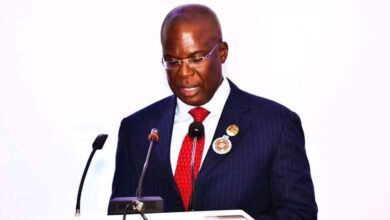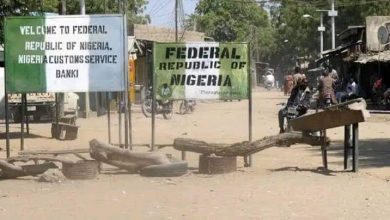Boosting Naira Value: Understanding the Nigerian Government’s Strategies

Boosting Naira Value: Understanding the Nigerian Government’s Strategies
As the economic landscape evolves, governments worldwide continually seek strategies to bolster their national currencies’ value and stability. In Nigeria, recent announcements from the government indicate a concerted effort to enhance the value of the Naira, the country’s fiat currency. In this blog post, we’ll delve into the Nigerian government’s intentions to boost the Naira’s value and explore the potential implications for citizens and businesses alike.
Understanding the Importance of a Strong Naira
A robust and stable national currency is essential for fostering economic growth, attracting foreign investment, and preserving purchasing power for citizens. For Nigeria, a country with a vibrant and diverse economy, maintaining the strength of the Naira is crucial for sustainable development and financial stability.
Government Initiatives to Boost the Naira
In recent months, the Nigerian government has introduced various measures aimed at enhancing the Naira’s value and stability:
- Monetary Policy Adjustments: The Central Bank of Nigeria (CBN) has implemented monetary policy adjustments, including interest rate changes and liquidity management measures, to regulate the money supply and support the Naira’s value.
- Foreign Exchange Interventions: The government has intervened in the foreign exchange market to stabilize the Naira’s exchange rate against major currencies, such as the US Dollar and Euro, through interventions in the foreign exchange market.
- Promotion of Non-Oil Sectors: To reduce reliance on oil exports and diversify the economy, the government has prioritized initiatives to promote non-oil sectors such as agriculture, manufacturing, and technology, which can contribute to increased export earnings and foreign exchange reserves.
Implications for Businesses and Citizens
The Nigerian government’s efforts to boost the Naira’s value can have significant implications for businesses and citizens across various sectors:
- Importers and Exporters: A stronger Naira can benefit importers by reducing the cost of imported goods and raw materials, while exporters may face challenges due to reduced competitiveness in international markets.
- Investors: Investors, both domestic and foreign, may adjust their investment strategies in response to changes in the Naira’s value, impacting sectors such as real estate, equities, and foreign direct investment.
- Consumers: Changes in the Naira’s value can affect consumer purchasing power, influencing spending patterns and inflation rates, which, in turn, can impact overall economic stability and welfare.
Navigating the Economic Landscape
As the Nigerian government implements measures to boost the Naira’s value, businesses and citizens must stay informed and adapt to evolving economic conditions. Strategies such as diversifying revenue streams, managing currency risk, and staying abreast of regulatory developments can help mitigate risks and capitalize on opportunities in the dynamic economic environment.
Understanding Monetary Policy Adjustments and Their Impact on Nigerian Crypto Traders
Monetary policy adjustments play a pivotal role in shaping the economic landscape of nations, and Nigeria is no exception. As the government takes steps to stabilize the Naira and regulate the financial markets, crypto traders in Nigeria are poised to understand the implications of these adjustments on their trading activities. In this blog post, we’ll delve into what monetary policy adjustments entail and how they can affect Nigerian crypto traders.
Decoding Monetary Policy Adjustments
Monetary policy refers to the actions taken by a country’s central bank to regulate the money supply, interest rates, and inflation to achieve economic objectives such as price stability, full employment, and sustainable growth. Some common tools used in monetary policy adjustments include:
- Interest Rates: Central banks adjust interest rates to influence borrowing and spending behavior. Lowering interest rates encourages borrowing and investment, while raising rates can curb inflation.
- Open Market Operations: Central banks buy and sell government securities to control the money supply and influence interest rates in the financial system.
- Reserve Requirements: Central banks mandate the amount of reserves that commercial banks must hold, affecting the amount of money banks can lend out.
Impact on Nigerian Crypto Traders
Monetary policy adjustments can have far-reaching implications for crypto traders in Nigeria:
- Interest Rate Changes: Changes in interest rates can affect the cost of borrowing and investing, influencing investor sentiment and asset prices in the crypto market.
- Inflation and Purchasing Power: Monetary policy measures aimed at controlling inflation can impact the purchasing power of the Naira, potentially influencing consumer spending and investment decisions in cryptocurrencies.
- Market Liquidity: Open market operations and changes in reserve requirements can affect liquidity in the financial system, which may indirectly impact trading volumes and market volatility in the crypto space.
Navigating the Impact
Given the potential impact of monetary policy adjustments on crypto trading activities, Nigerian traders can consider the following strategies:
- Stay Informed: Keep abreast of monetary policy announcements and their potential implications for the broader economy and financial markets.
- Diversify Portfolios: Diversification across different asset classes can help mitigate risk and exposure to fluctuations in the cryptocurrency market triggered by monetary policy changes.
- Adapt Trading Strategies: Be flexible in adjusting trading strategies to changing market conditions influenced by monetary policy developments.
Conclusion
The Nigerian government’s intentions to boost the value of the Naira underscore its commitment to fostering economic stability and growth. By implementing targeted policies and initiatives, the government aims to strengthen the country’s currency and enhance its position in the global marketplace. As businesses and citizens navigate these changes, staying informed, adaptable, and proactive will be essential for thriving in Nigeria’s evolving economic landscape.
arewanahiya.com







